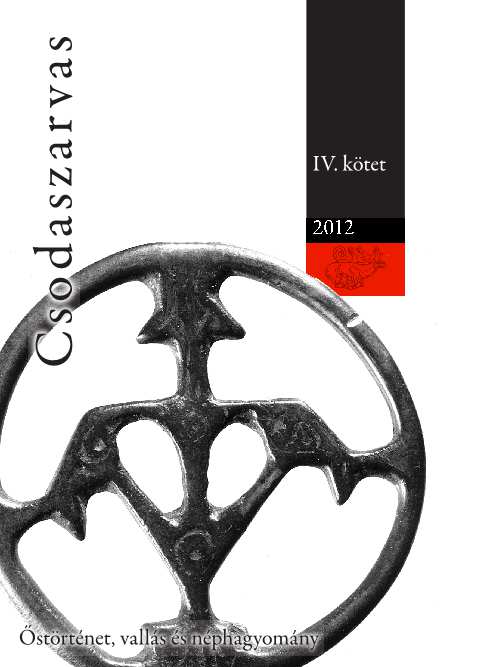
We kindly inform you that, as long as the subject affiliation of our 300.000+ articles is in progress, you might get unsufficient or no results on your third level or second level search. In this case, please broaden your search criteria.

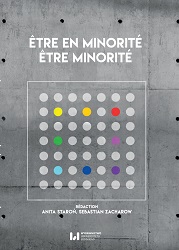
In his plays Jean Anouilh often raised the issues of discrimination, intolerance and the dominance of certain social groups over others. Minorities, however, were commonly portrayed in a negative light, and their striving for equality was mocked. It is not surprising then, that the attitude of the author aroused some controversies.In several of the plays which were analysed in this article, Anouilh in an interesting manner reverses the dominance dynamics between the minority and the majority to reveal certain universal truths about humans. He shows in a satirical way what happens when minority groups neglect or intentionally violate the rights of others in their efforts to achieve equality. Once oppressed they become the oppressors. That leads to the vicious-circle effect and the lack of social order. It seems that Anouilh postulates compromise and mutual tolerance between minorities and the majority, because, according to him, only on the basis of these two values can social justice be built.
More...
A major figure in the Quebec Theater, Marcel Dubé belongs to the generation of the playwrights that introduces the francophone theater to French Canada. Born in 1930, contemporaneous with Michel Tremblay, Jean Barbeau, Antonine Maillet and Michel Garneau, becomes known to the public at large by his play Zone, written in 1953, in a period of a “great political and economic darkness”. Subsequently, Florence from 1957 and An ordinary soldier from 1958, depict a minority of young disadvantaged people; a francophone minority facing all powerful Anglophones. The main characters of these three plays as representatives of an entire generation in the history of Quebec, serve us as an example in order to show a certain reality of francophone Canada.
More...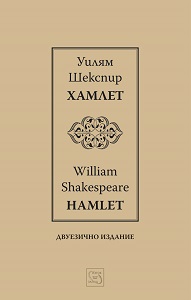
Shakespeare’s Hamlet is the first book of the new bilingual library "English Poetic Classics" by the East-West Publishing House. The bilingual format of this library provides readers with the opportunity to get deeper into the subtleties of the text regarding some of the most valuable works of English literature by comparing original text and its translation, and also to get into the specifics of poetic translation of classical works. Hamlet is Shakespeare's most popular, and most puzzling, play. It follows the form of a "revenge tragedy," in which the hero, Hamlet, seeks vengeance against his father's murderer, his uncle Claudius, now the king of Denmark. Much of its fascination, however, lies in its uncertainties. Among them: What is the Ghost--Hamlet's father demanding justice, a tempting demon, an angelic messenger? Does Hamlet go mad, or merely pretend to? Once he is sure that Claudius is a murderer, why does he not act? Was his mother, Gertrude, unfaithful to her husband or complicit in his murder?
More...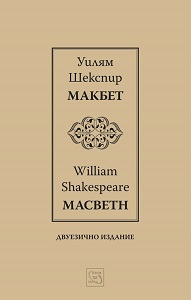
Shakespeare’s Macbeth is the fourth book of the new bilingual library "English Poetic Classics" by the East-West Publishing House. The bilingual format of this library provides readers with the opportunity to get deeper into the subtleties of the text regarding some of the most valuable works of English literature by comparing original text and its translation, and also to get into the specifics of poetic translation of classical works. In 1603, James VI of Scotland ascended the English throne, becoming James I of England. London was alive with an interest in all things Scottish, and Shakespeare turned to Scottish history for material. He found a spectacle of violence and stories of traitors advised by witches and wizards, echoing James’s belief in a connection between treason and witchcraft. In depicting a man who murders to become king, Macbeth teases us with huge questions. Is Macbeth tempted by fate, or by his or his wife’s ambition? Why does their success turn to ashes? Like other plays, Macbeth speaks to each generation. Its story was once seen as that of a hero who commits an evil act and pays an enormous price. Recently, it has been applied to nations that overreach themselves and to modern alienation. The line is blurred between Macbeth’s evil and his opponents’ good, and there are new attitudes toward both witchcraft and gender.
More...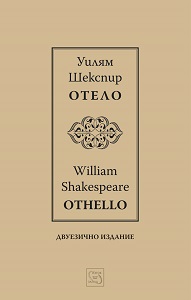
Shakespeare’s Othello is the second book of the new bilingual library "English Poetic Classics" by the East-West Publishing House. The bilingual format of this library provides readers with the opportunity to get deeper into the subtleties of the text regarding some of the most valuable works of English literature by comparing original text and its translation, and also to get into the specifics of poetic translation of classical works. In Othello, Shakespeare creates powerful drama from a marriage between the exotic Moor Othello and the Venetian lady Desdemona that begins with elopement and mutual devotion and ends with jealous rage and death. Shakespeare builds many differences into his hero and heroine, including race, age, and cultural background. Yet most readers and audiences believe the couple’s strong love would overcome these differences were it not for Iago, who sets out to destroy Othello. Iago’s false insinuations about Desdemona’s infidelity draw Othello into his schemes, and Desdemona is subjected to Othello’s horrifying verbal and physical assaults.
More...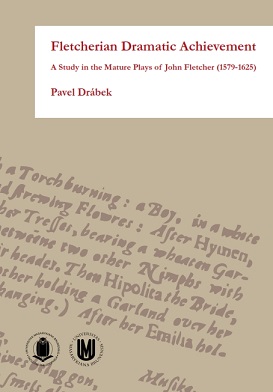
The mature plays of John Fletcher, Shakespeare’s collaborator and successor with the King’s Men, have received little critical attention. This book analyzes the specifics of mature Fletcherian style, proposing a reading that agrees with the Baroque mode. Special attention is given to anachronistic conventions that have been appllied to Fletcherian drama.
More...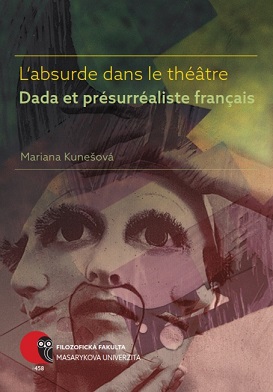
The publication focuses on the absurd in the French Dada and pre-surrealist theatre, examining the scenical potential of three texts which have, until now, remained practically unexplored: “La Premiere aventure celeste de Mr. Antipyrine” by T. Tzara, “Les Mysteres de l’amour” by R. Vitrac, and “S’il vous plait” by A. Breton and P. Soupault. The author understands the absurd as an aesthetic category applicable to theatre analysis in general – contrary to the “Theatre of the absurd”, a concept suggested by M. Esslin in order to characterize the avant-garde of the 1950s and often criticized for its lack of precision. The conclusion evaluates Esslin's contribution to the study of the absurd in theatre.
More...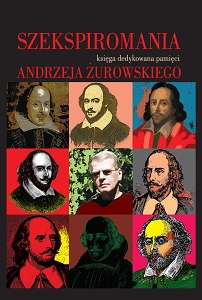
A collection of essays dedicated to the memory of a renowned Shakespeare scholar Andrzej Żurowski (1944–2013). The book is devoted to the interpretation and reception of Shakespeare’s works in Polish theatre and abroad, to theatrical practices and various dramatic devices, to translations and comparative studies, as well as to polemics and Shakespearean inspirations in broadly defined culture: in music, iconography, and translation. A diverse study of the phenomenon of the contemporary and global Shakespeare.
More...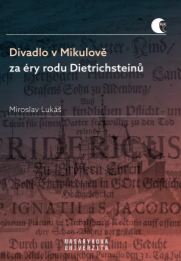
The thesis aims to map the theater life in Mikulov between the period when the estate belonged to the aristocratic family of the Dietrichsteins until the beginning of the World War II. The large time span of the scope understandably, has its negatives, as it does not allow a more thorough analysis of the Piarist school theatre in Mikulov. On the other hand, it enabled greater heuristic research, the results of which are collected here and offered to the needs of further researchers interested in the history of theater in Moravia and Silesia. The most important period in the history of theater in Mikulov, which currently has a significant overlap to the development of the Central European theater, begins with the era of Cardinal Dietrichstein in the first half of the 17th century, when Mikulov became an important political and cultural-social as well as religious center of Moravia. At that time the oldest castle theater in our territory was built and simultaneously the Piarists arrived, they used the theater as an educative tool. Piarist school theater remained the main mediator in performing arts in the city until the mid-18th century. The peak of the designated period came with the reign of Leopold Josef of Dietrichstein in the turn of the 17th and 18th centuries. Archival materials revealed Leopold as a significant lover of the performing arts, who had been in touch with theater since his childhood, whether at the Jesuit college or during his own activities in the home theater. Later on, he became a supporter of professional theater companies. During his reign, there was a significant heyday of the Piarist school theater, which managed to produce three performances per year. Two synopsis of Piarists’ plays from this period involves an interesting phrase “Nickolspurgerischen Parnasso” which emphasizes the importance of the performing arts in Mikulov together with its position in the contemporary consciousness. The professional traveling theater companies also played an important role in the theatre history of Mikulov. We can trace the presence of these travelling theatre companies from the end of the Thirty Years War. Records concerning their stay in Mikulov are unfortunately very scattered. They can be traced predominantly in the accounting documents of the Dietrichstein family, which proves that their performances had a connection with entertainment of nobility. From the second half of the 18th century, we can also work with requests from the theater directors who intended to perform their plays in the bourg. The Provincial Office, which usually approved these requests, however, did not grant the permission and rather limited the theater productions in the “small” subject towns. In the 19th century, the situation changed and theater companies increasingly appeared in Mikulov. From the second half of the same century, basically every year, unless there was a war or other unfortunate events, the city was visited by theater companies regularly. The repertoire included mostly comedies, farces, magical fable or “singspiele” and later mainly operettas. The repertoire varied according to the new trends stemming mainly from the Viennese theater environment. After the First World War, when the local German population became a minority in the newly established Czechoslovak Republic, the theater companies considered also national defensive and educative role of theater and they performed the dramas of German and Austrian classics. At the beginning of the 19th century the emancipated citizens tried to take over the initiative of the cultural life in Mikulov. At that time, unfortunately, they alluded to the limited possibilities of citizens and also the problem of inadequate facilities. The townspeople could occasionally use the castle areas for musical productions. For the operation the theater it was necessary to have a place with more permanent facilities, where it would be possible to build the stage and store the coulisse and props. Since 1812, the townspeople managed to get an space for the theater in the winter riding hall, but this cooperation lasted only until 1819, when it was (based on complaints) ended by Prince Franz Josef Dietrichstein. The problem of the shortage of suitable premises for holding the cultural and especially theater events in Mikulov continued into the early 20th century. This is a paradox, especially when there had been a piarist theater in the city since 1771, unfortunately it was unused at that time. A city theater that could be used by a professional travelling society did not exist at that time, even though this idea has existed in Mikulov, at least in the second half of the 19th century. There has never arisen any “German House”, where thelocal companies could meet, as was established in the nearby and smaller Valtice and Hustopeče towns. Theater companies and associations used the halls of local inns or a town shooting gallery for their per formances. Probably the most representative theatre scene in the modern history of the town was created in 1914 at the Hotel Rose. Translated text is an initial step for further research, which should facilitate a deeper understanding of Castle Theater, processing history piarist school theater and research theater activities of Leopold Ignác Dietrichstein. The presented study is an initial step for further research, which should help to facilitate a more elaborated understanding of castle theater, processing of the history of the piarist school theater and for a research of theater activities of Leopold Ignác Dietrichstein. These three branches of the research topics, which are mutually intertwined, are currently the most important stages in the theater life of Mikulov. Finally, the research also remains open for the roots of the important theater principal Johann Georg Gettner in Mikulov, whose years spent in Mikulov are still shrouded in mystery.
More...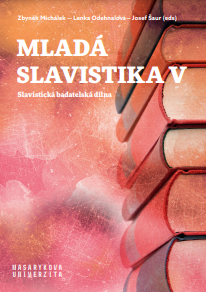
Young Slavistics V is the eighth consecutive volume in a series of annual publications by doctoral students from the Department of Slavonic Studies in Brno. There are eight studies by doctoral students in different Slavonic fields, in which the students focus on specific chosen topics of Slavonic literature, languages and cultures. Their writings are based on research done for dissertations currently being prepared. Therefore, the publication is a presentation of current research topics being addressed in Brno by young students of Slavonic Studies, and at the same time the texts indicate the trends in contemporary Slavonic research among this emerging generation of scholars.
More...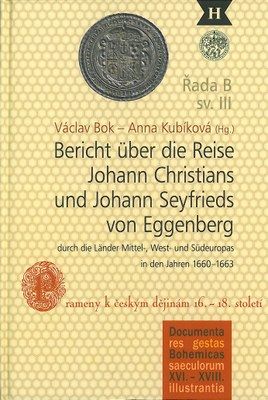
The edition presents report on the Grand Tour of Johann Christoph and Johann Seyfried Princes of Eggenberg. The journey occurred between 1660 and 1663, the aim was to attend the University of Louvain (Löwen) and then to travel through France and Italy. The report is written in German, it includes a long description of Paris and Italian cities. The introductory essay is written in German, it tells the history of the Eggenberg family and their possessions in Southern Bohemia. It also explains the methods used to finance the Grand Tour. All the explanatory footnotes are also in German. There are also explanatory comments annexed to the report, in which the editors discuss the German language style, the identity of the author, the purpose of the report and the art monuments commented in the report. The e-book does not include pictures.
More...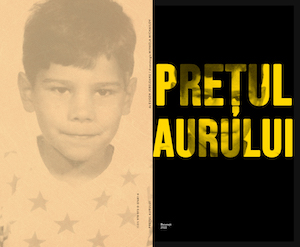
The Price of Gold is an emotional play-testimony about the coming of age of a child who grew up dreaming of becoming a sports dance champion. A child for whom the bodies of the dancers he watched represented both rigor, discipline, freedom and courage. "The Price of Gold" is a vulnerable confession in which memories from the dance hall, from trainings and camps become a subjective map of detachment from formative moments. Remembrance is a transformative act, which gives fragility the power to move forward.
More...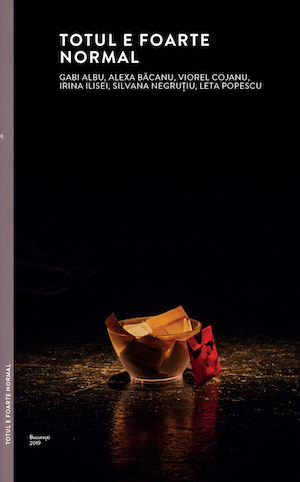
The project "EVERYTHING IS VERY NORMAL - DIALOGUE WITHOUT TABOOS." is organized by the Replika Cultural Association and co-financed by the National Cultural Fund Administration - AFCN.
More...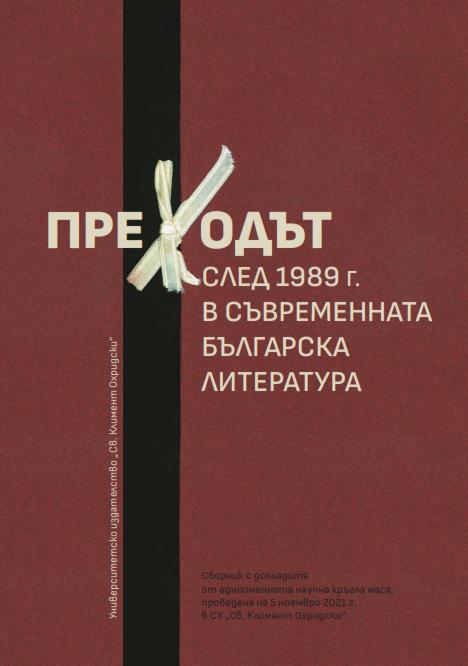
The collection contains the papers from the academic round table “The Post-1989 Transition in Contemporary Bulgarian Literature,” held at Sofia University “St. Kliment Ohridski” in November 2021.Three decades after the onset of the Transition, the articles collected here explore its dimensions in the mirror of literature. What images of the post-1989 era does literature create? How do the contemporary works interpret the recent socialist past? Does literature participate in the formation of the perceptions and the memory of the transition? The above issues are also examined in a broader interdisciplinary perspective, in relation to the media, theatre, cinema, and cultural anthropology.
More...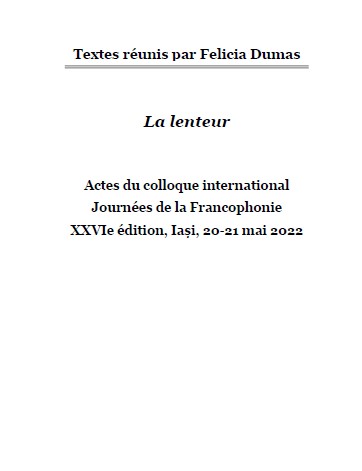
Le présent volume réunit les textes des communications présentées lors du colloque annuel organisé par le Département de Français de la Faculté des Lettres de l’Université « Alexandru Ioan Cuza » de Iași, sous le nom des « Journées de la Francophonie ». En 2022, ce fut la XXVIe édition de cette manifestation scientifique, devenue au fils des années traditionnelle, et attendue avec intérêt par les francophones de la région, du pays et même de nombreuses universités étrangères, partenaires dans différents programmes et échanges internationaux.
More...
The collection contains reports presented at the scientific forum "The Rights of Performers". The forum was held on February 27, 2024 in the Large Conference Hall of the University of National and World Economy, Sofia, Bulgaria. Researchers and experts on various aspects of intellectual property presented papers on the following subjects: About some features in the administration of the minister of culture; Performing artists’ trademarks rights; Opportunities and challenges for the performing artist in the digital environment; Copyright protection of traditional cultural expressions; Inventions created by world-famous personalities in the music and film business; The role of the internet for performers – economic benefits and losses; Intellectual property rights in photographing stage performances of artists.
More...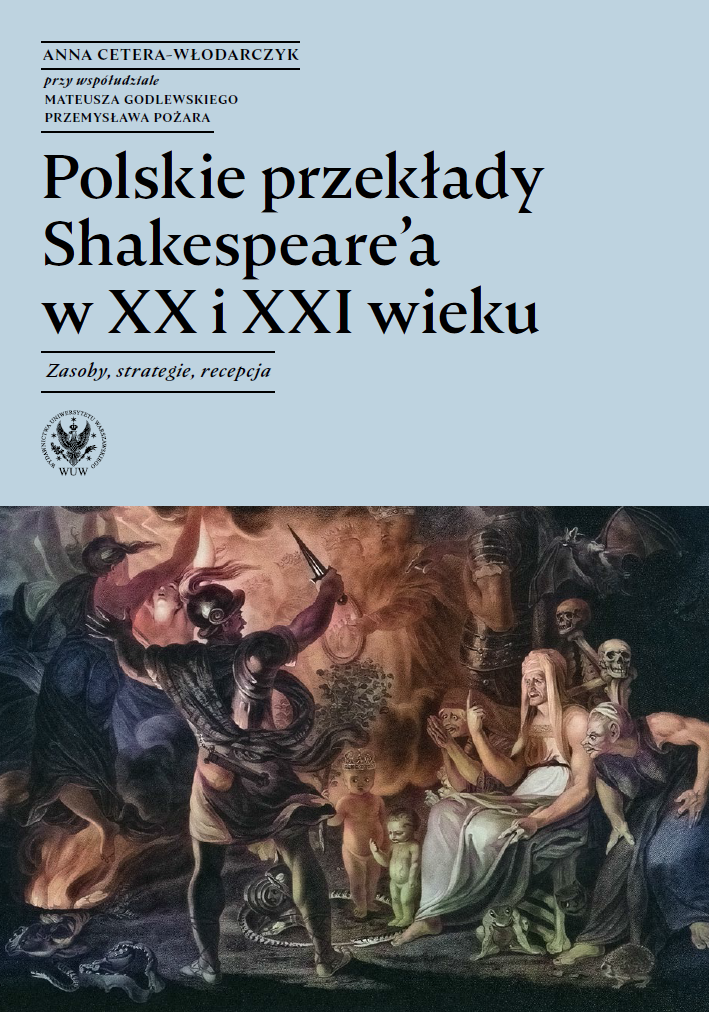
The book offers a comprehensive account of Polish Shakespeare translations in the 20th and 21st century with particular attention to the analysis of translation strategies, biographical contexts and critical reception. The study centers on broadly understood assimilation processes of foreign literature in translation, their complexity and dynamics, and elucidates their historical, literary and theatrical dimension. The publication offers updates on Polish reception of Shakespeare and invites advanced comparative studies. This refers in particular to the relation of Shakespeare criticism and translation, the impact of aesthetics and theatrical conventions on translation policies, and the mechanisms governing retranslation of canonical works.
More...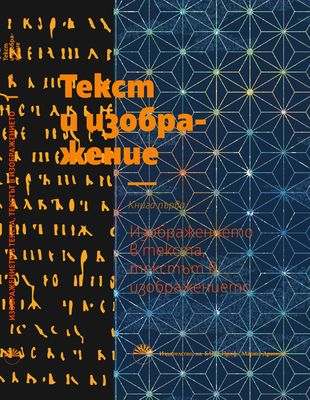
On September 12, 2023, the First Interdisciplinary Anniversary Conference “Image in the Text, Text in the Image” opened in the Aula of the National Academy of Theatre and Film Arts “Kr. Sarafov”. Its organizers are: the National Academy of Theatre and Film Arts “Kr. Sarafov”, the Institute of Literature at the Bulgarian Academy of Sciences, the Institute for the Study of Arts at the Bulgarian Academy of Sciences and the New Bulgarian University. This conference was dedicated to three anniversaries: the 75th anniversary of the establishment of the National Academy of Theatre and Film Arts “Kr. Sarafov”, the 75th anniversary of the establishment of the Institute of Literature at the Bulgarian Academy of Sciences, the 75th anniversary of the establishment of the Institute for the Study of Arts at the Bulgarian Academy of Sciences. The initiative for conducting a large-scale and ongoing interdisciplinary inter-institutional project of scientific conferences under the title “Text and Image” belongs to the Department of World Culture.
More...